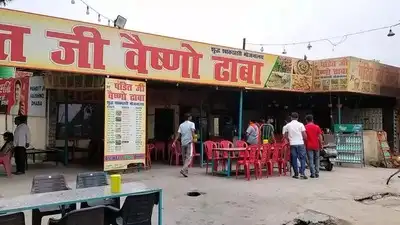Agra : In an alarming sign of growing religious intolerance in India, Muslim workers at roadside eateries along the Kanwar Yatra route are being compelled to hide their identities, adopt Hindu names, and even change their attire to avoid violence and harassment by self-styled vigilantes, reported the Times of India.
Along the Delhi-Dehradun highway, where saffron-clad Kanwariyas travel in large numbers during the annual pilgrimage, workers like Tajammul are rechristened with Hindu names like “Gopal” to avoid detection. “They were afraid,” he recounted. “They heard someone was coming to check who we really were.”
One of those individuals is Swami Yashveer Maharaj, a self-declared seer from Muzaffarnagar who spearheaded a “pehchan abhiyan” (identity verification campaign) to inspect whether eateries with Hindu-sounding names are actually operated by Muslims. He claims such names mislead devotees, propagating unfounded conspiracy theories that have tangible, harmful outcomes.
This growing atmosphere of fear has led many Muslim-run stalls to shut down during the yatra season. Some vendors choose to disappear; others try to blend in. Shadab Ahmed, a food vendor from Meerut, now goes by aliases like “Sonu” or “Pappu” when working. “We can’t afford to be noticed in the wrong way,” he said.
In towns such as Roorkee and Muzaffarnagar, Muslim dhaba owners and workers feel increasingly unsafe. Mohammad Waseem, a carpet seller from Nainital, was recently assaulted after a group of men demanded to see his Aadhaar card and discovered his Muslim name. “If I had told them a different name, maybe I would’ve been safe,” he lamented.
The silence from authorities has only deepened concerns. Asif Rahi, president of the social welfare group Paigham-e-Insaniyat, which once offered services to Kanwariyas irrespective of religion, noted a disturbing shift. “This isn’t about the yatra anymore. It’s about the normalization of being asked to prove your identity,” he said. “And when violence happens, no one is held accountable.”
Meanwhile, politicians have made controversial statements that further fuel the tension. Uttar Pradesh minister Kapil Dev Agarwal last year suggested Muslim-run eateries should display signboards stating their ownership, arguing that hiding names is akin to lying. “Even a child wears a cap and goes to madrasa — no one objects. So why hide your name when you run a business?” he said.
Social activist Dilshad Pehlwan countered, “If it’s about honesty, then check the factories owned by Hindus but operated by Muslims too. You can’t selectively apply rules when it fits a certain narrative.”
As fear grows, so does fatigue. Tajammul eventually quit his job. “Customers still call me Gopal,” he said quietly. “I don’t correct them anymore. It makes things quieter. And that’s sometimes enough.”




